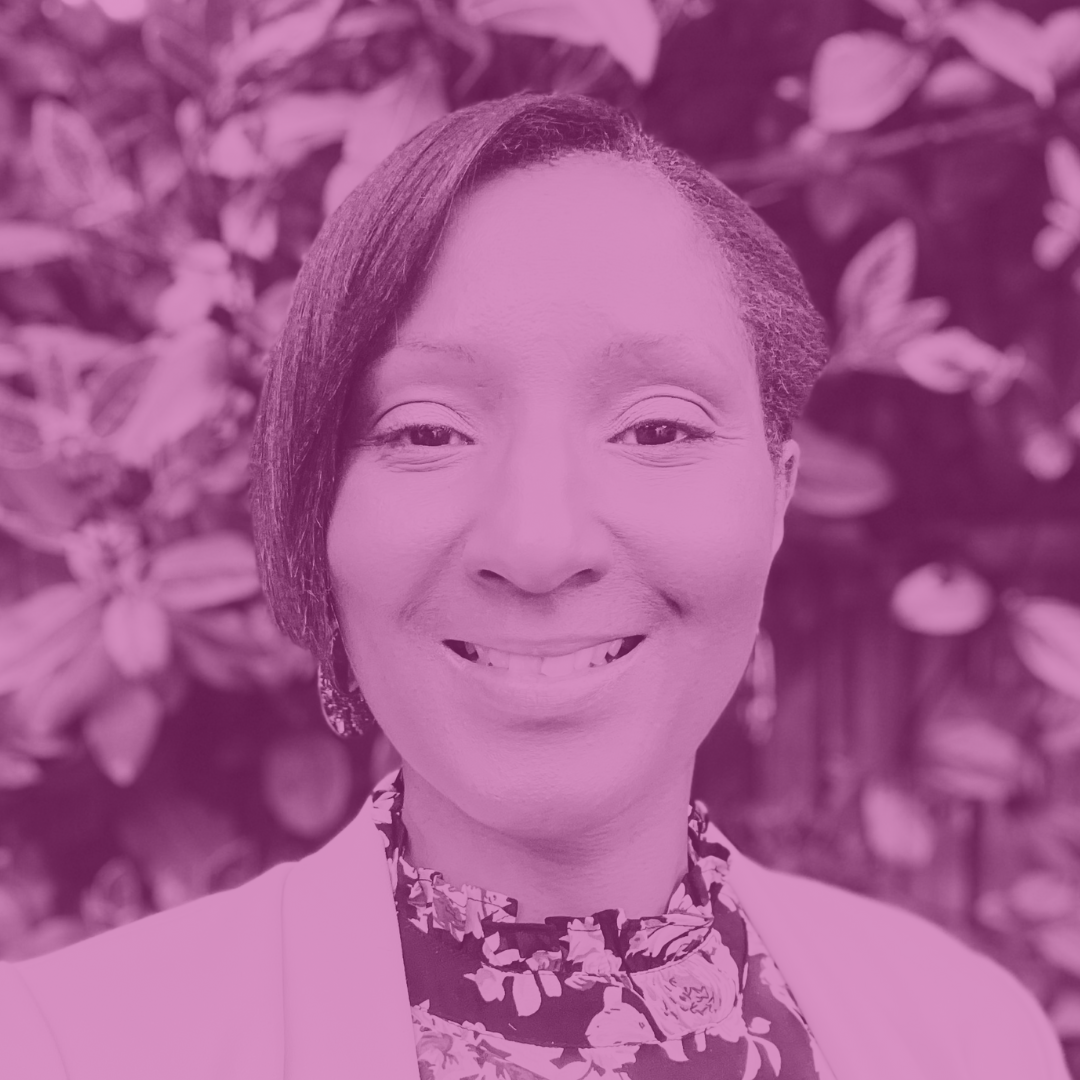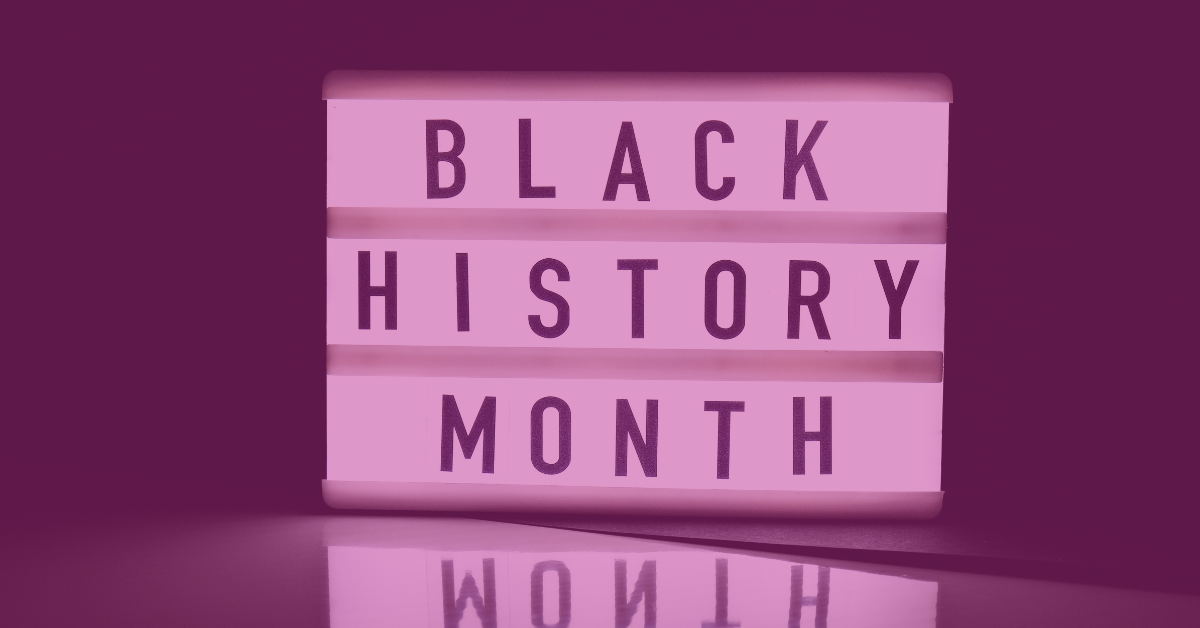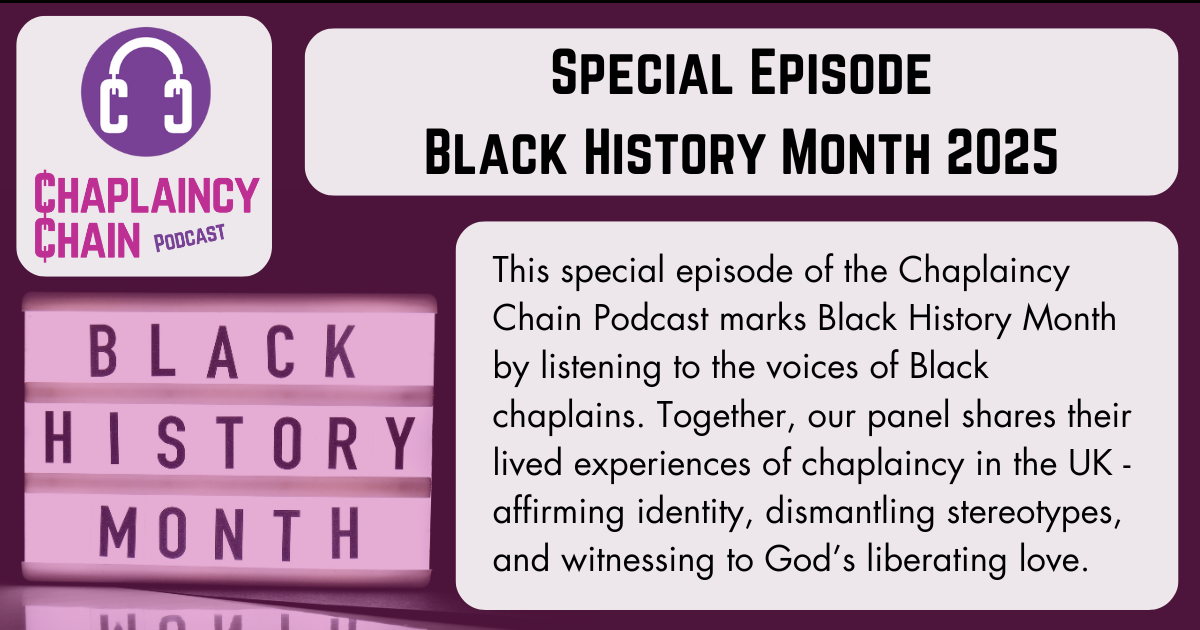This special episode of the Chaplaincy Chain Podcast marks Black History Month by listening to the voices of Black chaplains. Together, our panel shares their lived experiences of chaplaincy in the UK – affirming identity, dismantling stereotypes, and witnessing to God’s liberating love.
Listen
Guest Host

Grace Allick
Grace is a mum of two. Since her ordination as an AoG Minister in 2018, Grace worked part-time as a hospital Chaplain at Barking, Redbridge and Havering University NHS Trust in East London. She is a registered member of the UK Board of Healthcare Chaplains (UKBHC) and the College of Healthcare Chaplains (CHCC). Grace is also on the Free Churches Group Healthcare Steering Committee. Grace is committed to professional development and completed a Masters in Applied Theology.
The Guests

Leon Dundas
Born in Guyana (ancestral lands of South American tribes), son of a preacher man, having lived and studied in the lands of the Tainos (in the Caribbean) and North America first nation peoples and is of mixed heritage. Growing up in the context of conflicts rooted in cold war, race and faith-based narratives. Not surprisingly, therefore, Leon does his work with a deep committment to pluralism, inclusion and peacebuilding.
In 2005, left roles as Lecturer, Director of Prison Inspections and Mediator/Restorative Justice Consultant in Jamaica to lead a Nazarene church initiative in London. Now, serves as Methodist Minister and Managing Chaplain in a Soutwest/South Region Central of England Prison.

Elaine Hutchinson
Bio coming soon…

Newton Ndlovu
Chris is a Baptist minister who loves boats. He grew up on an island on the East Coast, worked as a boat builder and fisherman before being called to the ministry. After 23 years as sole minister in Haworth, West Yorkshire, he became the lead to the Waterways Chaplaincy and also works as a Pastoral Supervisor and runs the local community cinema.
The Episode
- Language and identity: From “person of colour” to “global majority” — what terms feel affirming, and why words matter.
- Stereotypes and expectations: “You’re not what I thought a chaplain would look like” – breaking down assumptions about authority, professionalism, and ministry.
- Cultural translation: Chaplains as translators of culture – from gestures and hairstyles to unconscious bias and systemic inequality.
- Barriers and opportunities: Training, qualifications, denominational structures, and finding pathways into chaplaincy.
- History and hope: Black history beyond slavery – and why chaplains must educate and advocate for truth-telling, dignity, and liberation.
- Chaplaincy for all: The call to serve everyone, while also bringing the gift of representation and visibility.
Highlights and themes
- Challenging harmful metaphors that equate Blackness with sin or negativity.
- Reframing history: global majority vs. “minority ethnic.”
- The power of representation: “You can’t be what you can’t see.”
- Chaplains as court jesters, prophets, and translators in complex institutions.
- Barriers to entry: denominational structures, recognition of qualifications, and cultural challenges in hierarchical systems.
- Black chaplaincy as both liberation and education.
Notable Quotes
- “Language is a very important thing… the way words are communicated matters.”
- “You’re not what I thought a chaplain would look like.”
- “The black stone is the stone of positivity.”
- “Black history didn’t begin with slavery.”
- “I am a Black chaplain, but not a Black-only chaplain.”
- “You can’t be what you can’t see.”
- “Liberation comes through journeying with ordinary people.”
Help promote this episode
Help raise the profile of chaplaincy by promoting The Chaplaincy Chain Podcast. You might like to use some of these images in social media posts. You should be able to download and save them by right clicking on the image you would like to use. We really do appreciate any support in telling others!


